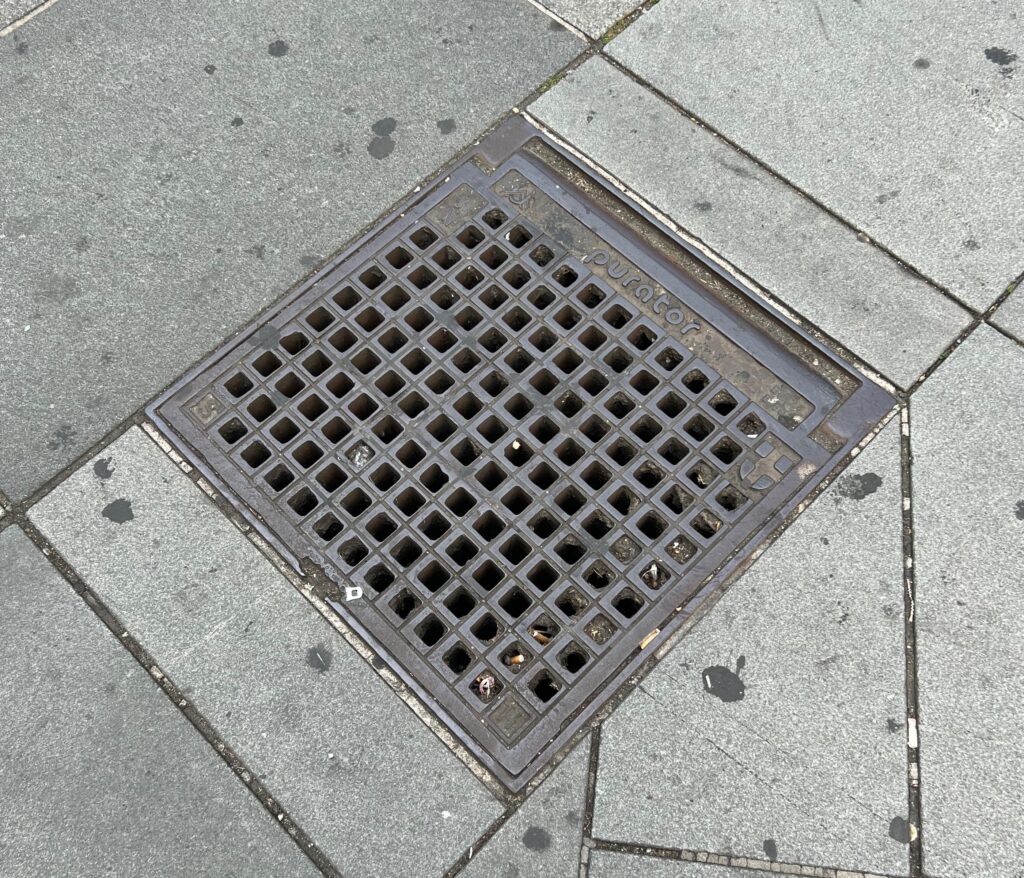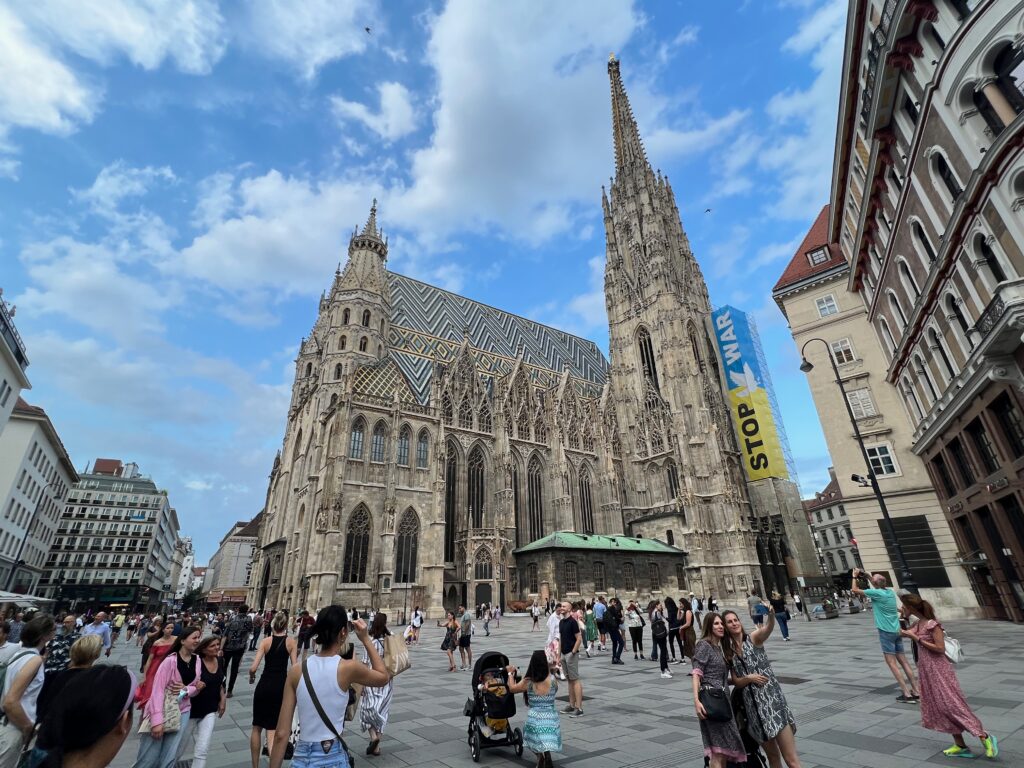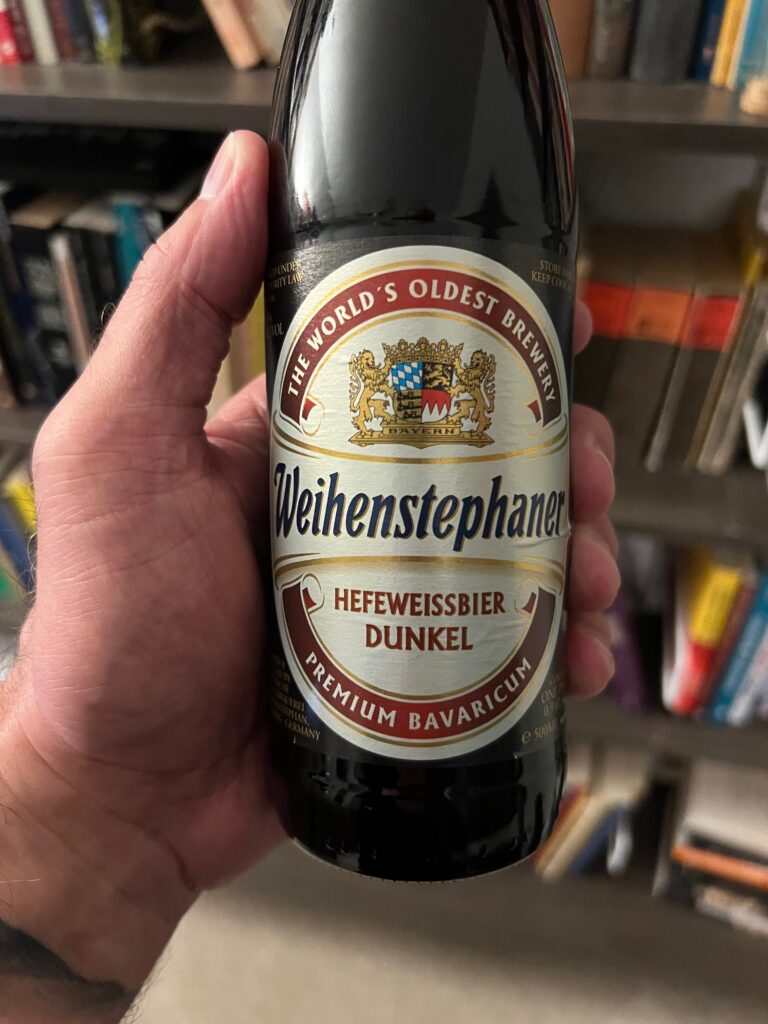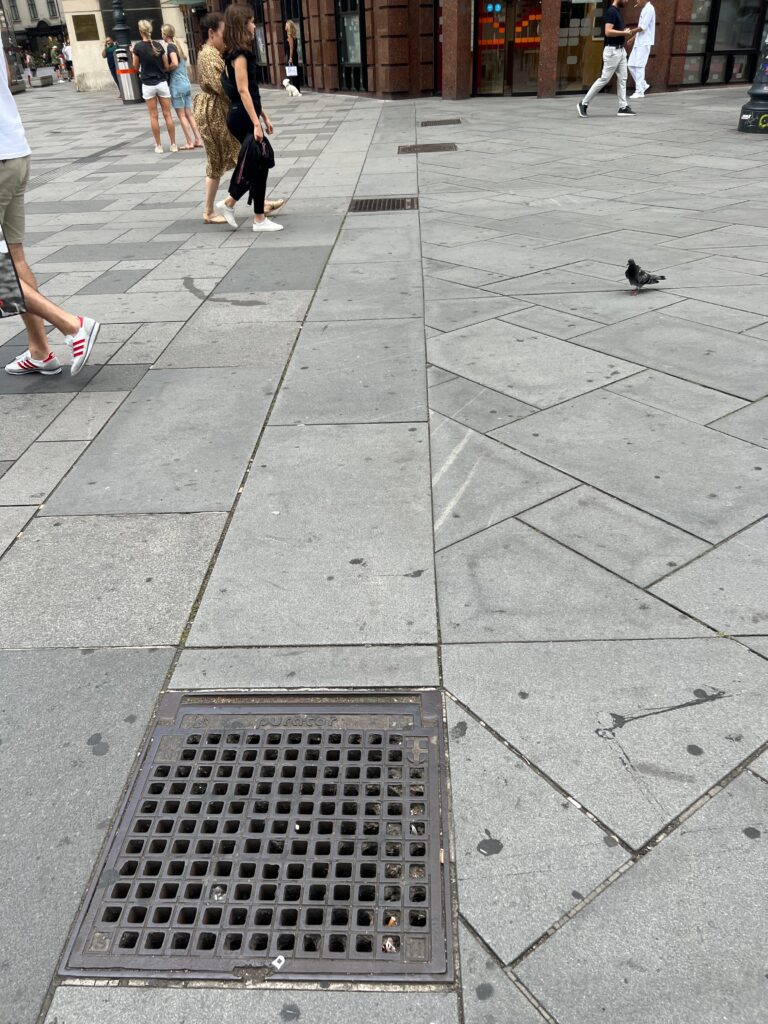In life as in my various administrative roles in academia, I have earned a well-deserved reputation for always having a Plan B (and Plan C). I hate surprises, so I plan for contingencies. After all, if you’ve done your homework, you can go to class and relax. But there’s one “contingency” in life that may well be contingent in terms of timing, but not inevitability: Sooner or later, no matter how well we do in the course, we will all take the Final Exam. I’ve thought a lot about my Final Exam, and I’d like to take a moment to share my Plan D.
Let me introduce you to My Sewer Grate.
My Sewer Grate lies in Stephansplatz, Bezirk 1, Vienna, Austria. There it is, in the foreground, four grates along from what is now but hasn’t always been the UniCredit Bank Austria, which you can see in the background. Situated at one end of Stephansplatz, My Sewer Grate affords a glorious view of Stephansdom, in the very heart of my city, Wien.
Wien (or, if you must, Vienna) is old. It was first settled by Celts in about 500 BCE. The Romans established a frontier camp on that settlement that later became Vindobona, an important center of trade. The Roman name for the city is derived from the Celtic word Vidunia, or “river in the woods” — die Donau, the Danube River.
It’s hard to explain why I love this place so much. Maybe it’s the fact that I’m surrounded by that mix of old and new that is quintessentially Vienna. Maybe it’s the way cultures bump and grind against each other everywhere in the city, as they have for 2500 years, until the rough edges seem to have worn down. Maybe it’s German, the background hum of all the other languages you hear on the streets. Nothing gives me more peace, nothing opens space for me to breathe more than being surrounded by people speaking the language I love most. It’s the language of my grandmother — meine Großmuttersprache — the language of my soul, the language that speaks in me when I can’t speak for myself. It’s also the source of some of my deepest sadness: I am no longer at home in my own language, and to be honest, my alienation from my own soul has been a lifelong sorrow.
My Sewer Grate, at the core of this city, is my “final resting place,” the place I want my ashes deposited, when my time comes.


People come from all over the world to this place, to see Stephansdom. Some people take selfies and check it off their list, moving on to the next tourist destination. Many stand in awe — as I do. Stephansdom has endured since the 14th century. It’s seen the full range of our aspirations and foibles, and it’s been damaged countless times — and restored by countless human hands, perhaps trying to make some anchor of permanence in this world of flux. It’s strangely comforting to reflect that I will become part of this place I love.
In case you’re wondering: I could not be more serious about Plan D. I’ve taken considerable trouble to ensure that my “final wish” is fulfilled. I don’t know when, and I can only do so much to ensure who, but I want my last act, my last intention, to be this: I want to go down this particular sewer grate, washed down by Weihenstephaner Dunkel, my favorite beer.
There’s something satisfying about the image of being washed into the sewer by Weihenstephaner, beer from the oldest continuously-operating brewery in the world. The brewery, now on the site of the Weihenstephan Abbey in Freising, Bavaria, claims 1046 as it founding, but the first reliable documented evidence of its existence dates from 1675. There’s some evidence dating from the eighth century of a hops garden in this area, and I like to believe that people were enjoying beer made there since that hops was planted — or discovered — who knows when.

My Plan D is a fitting final metaphor for my life as a philosopher. If I had any inclination to believe in an afterlife, I wouldn’t take it seriously anyway. I believe, as I have since my 13-year-old self turned away from my childhood religion, that what counts — the only thing that counts — is the life you live now. I’m not passing judgment on other beliefs; I respect autonomy too much for judgment. Rather, it’s personal: If I can believe in a better future, then surely I can do something, every day, to nudge this imperfect world toward that future — without having to believe that I will succeed.
Someone asked me recently about my “values.” With my characteristic blend of honestly and sarcasm (and I admit that it’s hard to tell those apart where I’m concerned), I replied: I have only one rule, a rule I adopted when I was 13. I try to avoid being a hypocrite. If I’d known how hard it was going to be, I’d have chosen a different rule.

That’s the spirit of my Plan D. I don’t want a grand Exit. I want someone I love to take my husk to Wien, spend a day eating and drinking at my favorite places, take time to listen to the bells and the organ in Stephansdom, and reflect on what we can accomplish, if only we have the will, to make this world more habitable and humane — and then deposit me unceremoniously down My Sewer Grate.
Think about it: I’m going down the sewer of a city founded in 500 BCE, with a chaser of beer from a brewery with a 1250 year history, in the shadow of a monument to a thousand years of human resilience in this world of impermanence and uncertainty. I can’t think of a better ending to my story.

